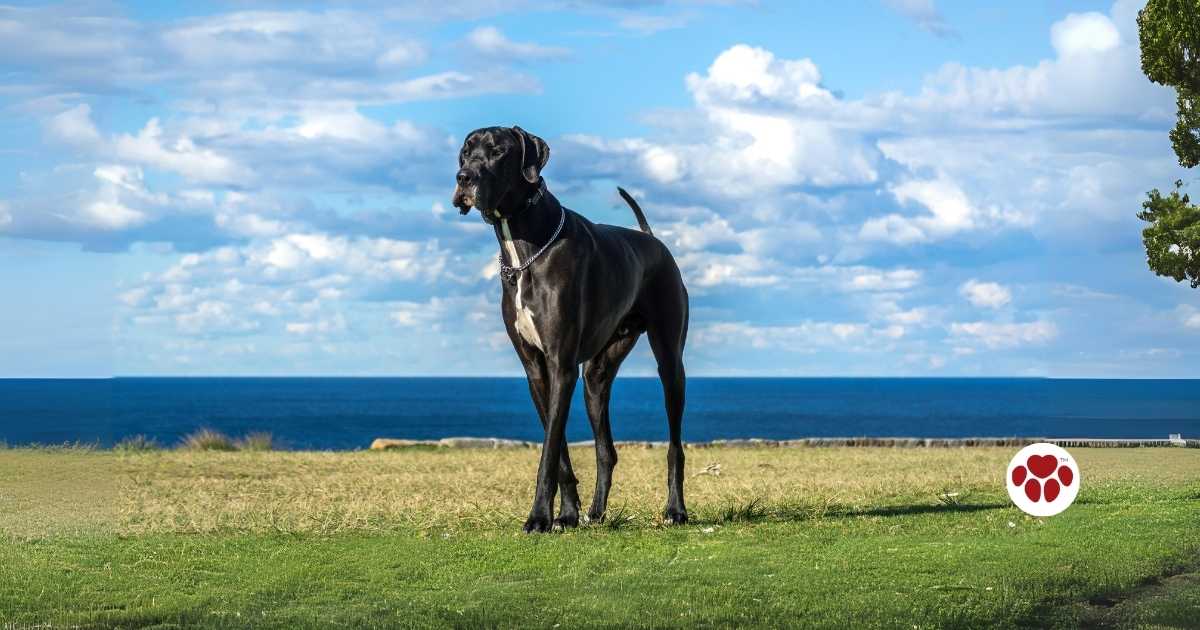
Great Dane Longevity and Health Issues
|
|
Time to read 9 min
|
|
Time to read 9 min
Great Danes are known for their larger-than-life size standing at 28-32” in height making them the tallest of the working breeds. Did you know that this can impact their longevity?
On average, a Great Dane has a shorter life span compared to other dog breeds. Understanding the factors that contribute to their shorter life span is essential in order to provide them with the best possible care.
In this article, we will discuss the secrets of a happy and healthy Great Dane, including the following:
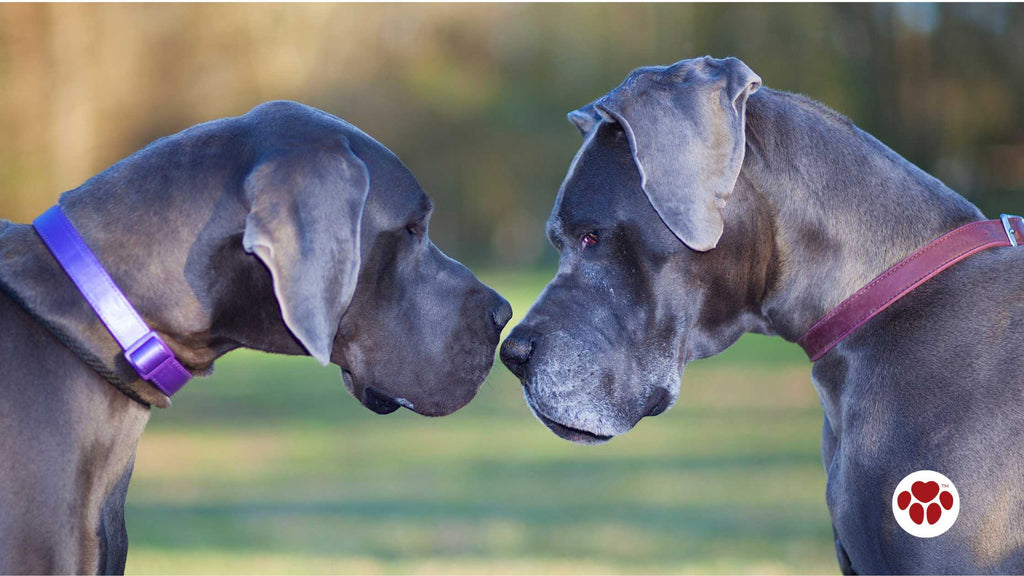
The average lifespan of a healthy Great Dane typically ranges between 7 to 10 years. However, individual lifespans can vary, and factors such as genetics, overall health, diet, exercise, and access to veterinary care can influence how long a Great Dane lives.
Great Danes are prone to various health issues such as bloat, hip dysplasia, and heart disease. While the average lifespan provides a general guideline, individual dogs may live longer or shorter lives based on their specific circumstances and health conditions.
Learning how to recognize the signs and symptoms of these conditions, as well as implementing preventative measures, can help extend their life span and improve their overall well-being.
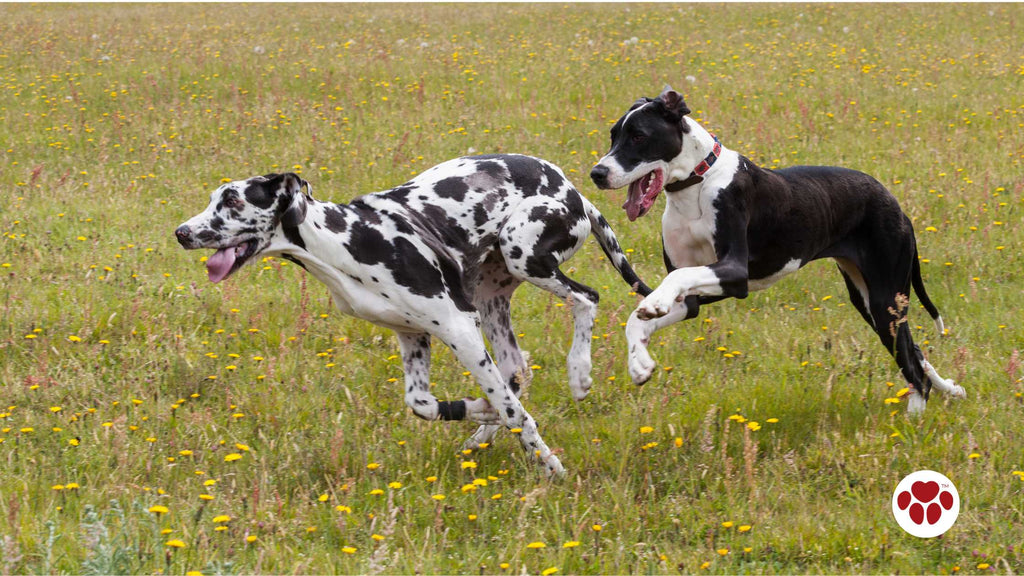
Great Danes may be known for their size, but it's important to note that they still require regular exercise and physical activity to maintain their overall health and well-being. While it's true that they are not as energetic as some smaller breeds, they still benefit greatly from daily exercise.
Regular exercise helps to keep their weight in check to prevent obesity. It also helps to strengthen their muscles and joints, which can help prevent certain health issues such as hip dysplasia. Check "Exploring CBD Oil's Benefits for Dogs' Dysplasia Comfort". Additionally, exercise provides mental stimulation and helps to prevent boredom, which can lead to destructive behavior. Read "Addressing Canine Anxiety: The Finest CBD Solutions for Your Dog".
When it comes to exercise, it's important to find a balance that suits your Great Dane's individual needs. While they don't require intense exercise like some high-energy breeds, they do benefit from daily walks and playtime (Boldan, M., 2022). Aim for at least 30 minutes to an hour of exercise every day, but be sure to monitor their energy levels and adjust accordingly.

Training and socialization are crucial for ensuring that your Great Dane is well-behaved and well-adjusted. Great Danes are intelligent dogs and thrive on mental stimulation. Without proper training and socialization, they can become anxious and develop behavioral issues.
Start training your Great Dane from a young age and be consistent with your approach. Use positive reinforcement techniques such as treats and praise to reward good behavior. Socialize your Great Dane with other dogs, animals, and people to ensure they are comfortable in different situations. Read "Puppy Wellness: Understanding the Benefits of CBD for Your Young Dog".
In addition to training and socialization, providing mental stimulation is essential for a happy and healthy Great Dane. Engage them with puzzle toys, interactive games, and obedience training sessions. This not only keeps them mentally sharp but also helps to prevent boredom and destructive behavior. Check "5 Ways To Training An Obedient Dog!".
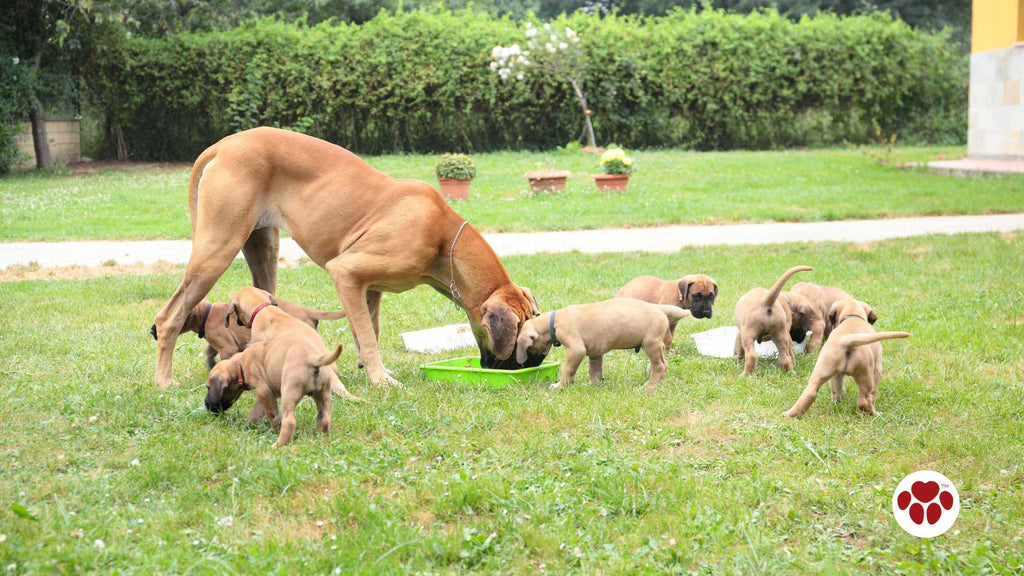
One of the main factors that impact their life span is their size. According to Jimenez, A., et al., (2018), “Large breed dogs may have higher glycolytic rates and DNA damage, potentially explaining their decreased lifespan compared to small breed dogs.” Being gentle giants, their size puts additional strain on their organs and joints, which can lead to health issues.
In general, larger breeds tend to have shorter life spans compared to smaller breeds. The 2016 study of Fan, R., et al., showed that “The lifespan of dogs scales negatively with body size due to a negative birth/adult mass ratio, which is a key factor in explaining the energy required for growth in dogs.”
Genetics also play a role in their life span (Boldan, M., 2022; Burke, A., 2020). Great Danes are prone to certain genetic conditions that can impact their overall health and longevity. This is why it's important to choose a reputable breeder who conducts health screenings to ensure that their breeding dogs are healthy and free from genetic disorders.
By exploring the role of genetics in canine longevity, the study of Jónás, D., et al., (2020), Two extremely old dogs suggested that there’s “a possible link between extreme longevity and gene transcription/translation regulation”.
While Great Dane’s shorter life span can be disheartening, it's important to focus on providing them with the best possible care and making the most of the time you have with them. By understanding their unique needs and addressing any health issues promptly, you can help them live a happy and fulfilling life.
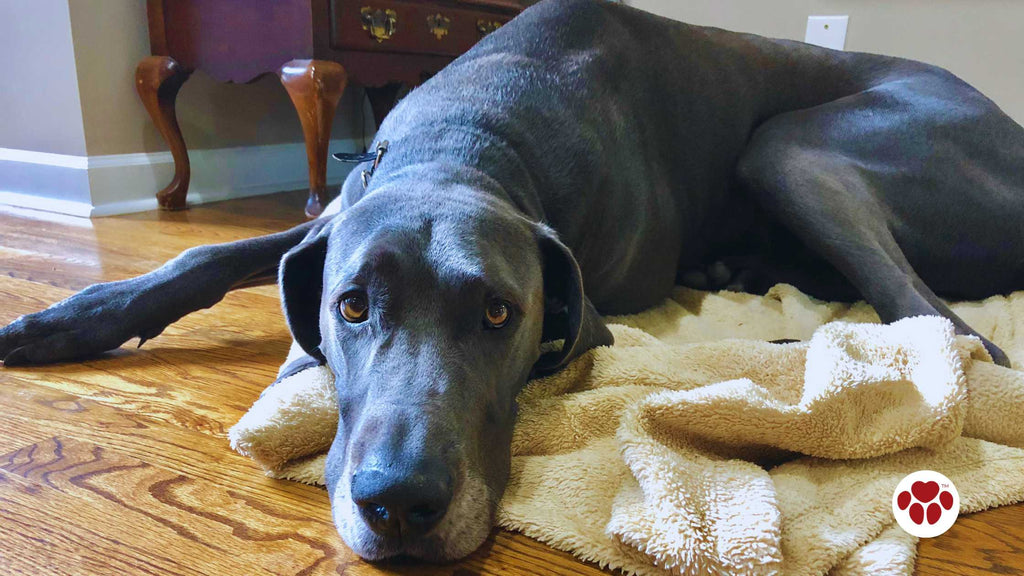
Great Danes are prone to certain health issues that are important to be aware of as a responsible owner. By recognizing the signs and symptoms early on, you can seek veterinary care and take preventive measures to manage these conditions effectively.
One of the most common health issues in Great Danes is bloat, also known as gastric dilatation-volvulus (GDV). Bloat is a life-threatening condition that occurs when the stomach fills with gas and twists. Signs of bloat include restlessness, pacing, unsuccessful attempts to vomit, and a distended abdomen. Immediate veterinary care is crucial if you suspect your Great Dane is experiencing bloat. Refer to "5 Tips To Help With Tummy Troubles".
Hip dysplasia is another health issue that Great Danes are prone to. It is a condition where the hip joint doesn't develop properly, leading to arthritis and mobility issues. Signs of hip dysplasia include difficulty getting up, lameness, and a bunny hopping gait. Regular exercise, maintaining a healthy weight, and providing joint supplements such as glucosamine and chondroitin can help manage this condition especially in senior dogs.
Heart disease is also a concern in Great Danes. Dilated cardiomyopathy (DCM) is a common heart condition that affects this breed. It is characterized by an enlarged heart and weakened heart muscles. Signs of heart disease may include coughing, difficulty breathing, fatigue, and fainting.
Regular veterinary check-ups and monitoring can help detect and manage heart disease in Great Danes. In 2001, Meurs, K., et al. reported in their study that “Dilated cardiomyopathy (DCM) in Great Danes may be an X-linked recessive trait, requiring cautious breeding and monitoring of affected offspring for early signs of disease.”
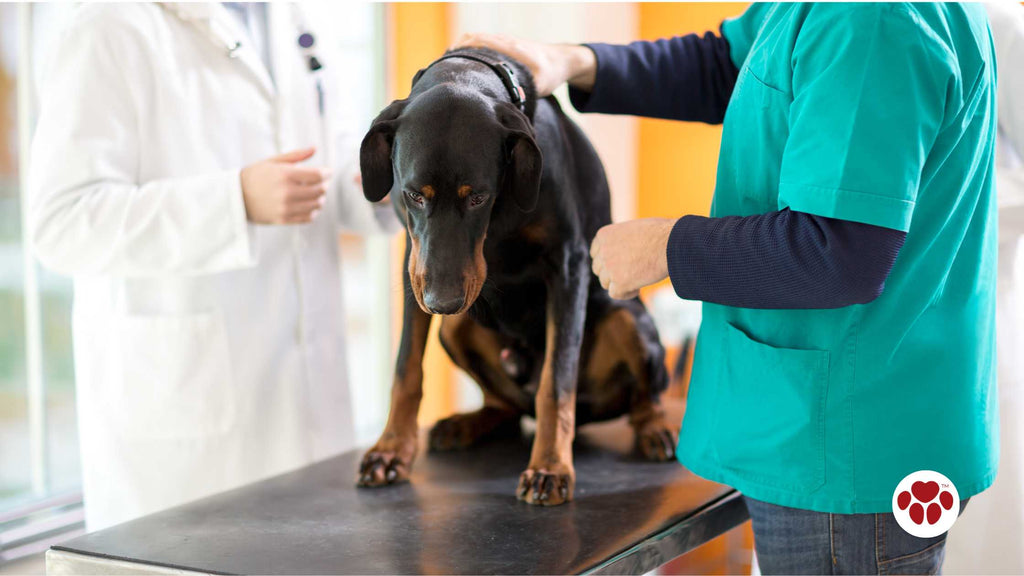
While Great Danes are prone to certain health issues, there are preventive measures that you can take to help keep them healthy and reduce the risk of these conditions.
Obesity can exacerbate existing health issues and put additional strain on their joints and organs. Ensure that your Great Dane is on a balanced and nutritious diet, and monitor their food intake to prevent overfeeding.
Great Danes, like all dogs, require regular veterinary care to ensure their overall health and well-being. Regular check-ups with a trusted veterinarian are crucial in identifying any potential health issues early on and addressing them promptly. Here are some key aspects of regular veterinary care for Great Danes:
Implementing a regular exercise routine and providing mental stimulation are important preventive measures as well. Regular exercise helps to maintain a healthy weight and keep their muscles and joints strong. Also, mental stimulation helps prevent boredom and behavioral issues.
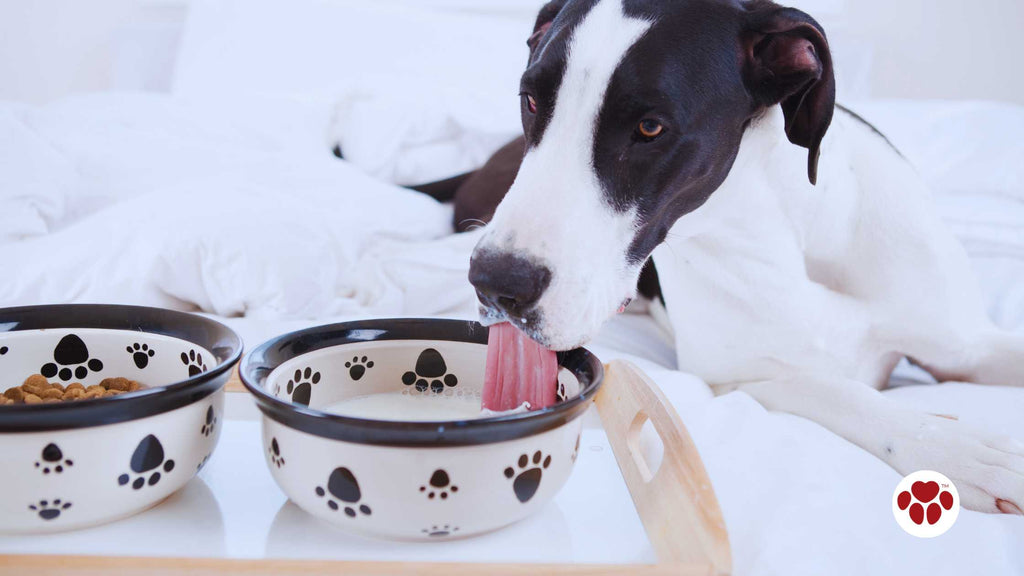
Proper nutrition is essential for a happy and healthy Great Dane. As a large breed, they have specific dietary needs that must be met to support their growth and overall well-being.
Choose a high-quality dog food that is specifically formulated for large breeds. Look for a food that contains a balance of protein, healthy fats, and carbohydrates. Avoid foods that contain fillers, artificial ingredients, and excessive amounts of grains.
Feeding your Great Dane multiple small meals throughout the day can help prevent bloat, as large meals can increase the risk of this condition. It's also important to monitor their weight and adjust their food intake accordingly to prevent obesity.
Supplements such as glucosamine and chondroitin can be beneficial for supporting joint health, especially as Great Danes are prone to hip dysplasia. Consult with your veterinarian to determine if supplements are necessary for your Great Dane.
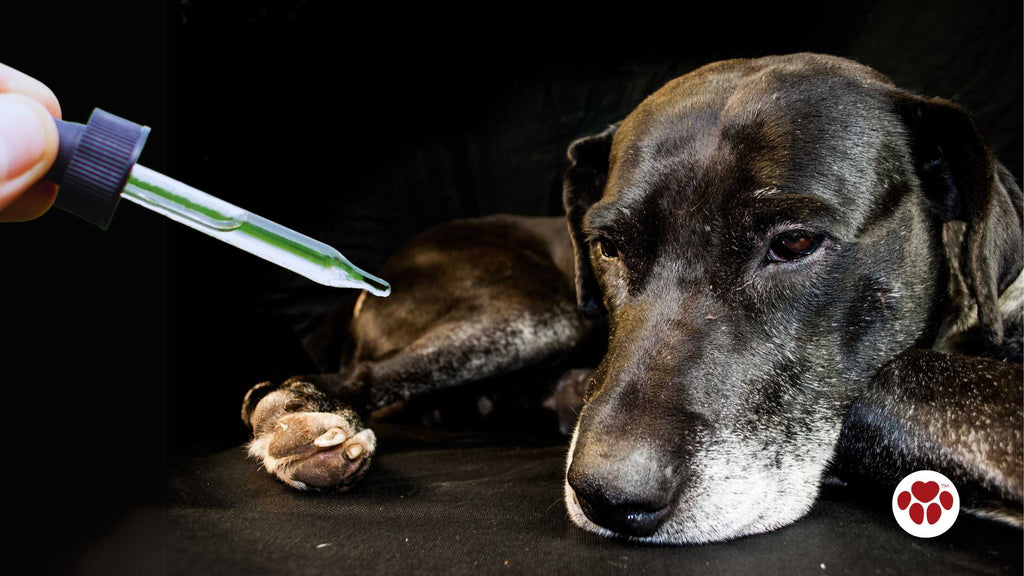
CBD oil has gained popularity in recent years for its potential health benefits for pets, including Great Danes. CBD, or cannabidiol, is derived from hemp plants and does not contain the psychoactive compound THC.
CBD oil, such as CBD Full-Spectrum Happy-Furever Oil has been reported to help manage pain and inflammation, reduce anxiety, and improve overall well-being in dogs.
It can be particularly beneficial for Great Danes who may experience joint pain and anxiety due to their size and predisposition to certain health issues. The study of Verrico, C., et. al., (2020) reported that “CBD shows potential in relieving canine osteoarthritis pain and increasing mobility without significant adverse effects.” Moreover, according to the study of Atalay S., et. al., “CBD exhibits anti-inflammatory and antioxidant properties, offering potential therapeutic benefits for diseases associated with oxidative stress.”
However, it's important to note that CBD oil should be used under the guidance of a holistic veterinarian as not all veterinarians are open to the use of this alternative treatment. Dosage and frequency should be determined based on your Great Dane's individual needs and health condition. Consult with your holistic veterinarian to determine if CBD oil is a suitable option for your Great Dane. Check "CBD Dosage Chart for Dogs".
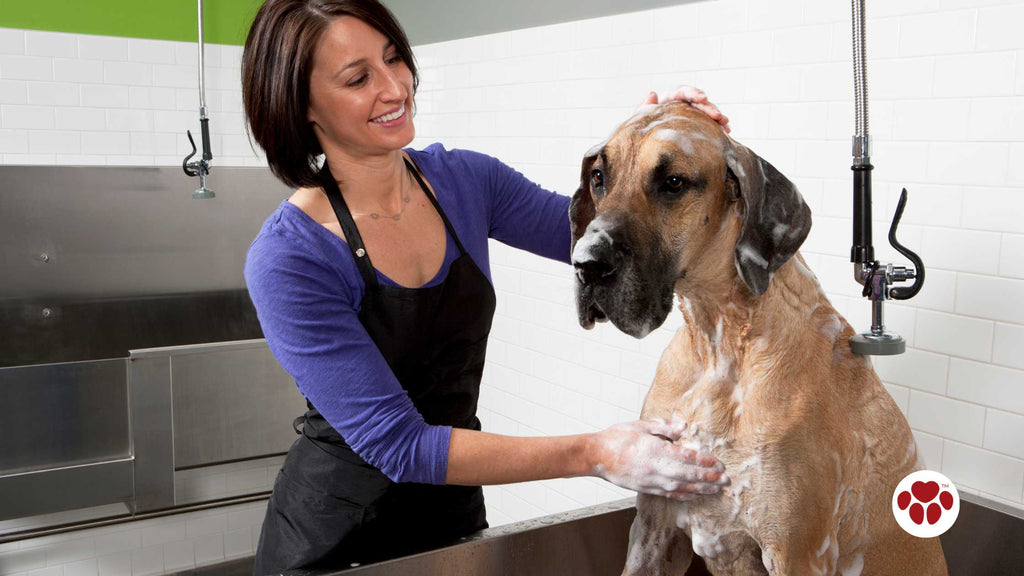
Although Great Danes have short coats, they still require regular grooming and hygiene to keep them clean and healthy.
Brushing your Great Dane's coat regularly helps to remove loose hair and prevent matting. It also stimulates the skin and promotes blood circulation. Use a soft-bristled brush or a grooming glove to gently brush their coat, paying attention to their underbelly and legs.
Regular bathing is also important to keep your Great Dane clean and smelling fresh. Use a gentle dog shampoo that is specifically formulated for their skin and coat type. Be sure to rinse thoroughly to remove all traces of shampoo.
In addition to grooming, it's important to maintain good oral hygiene for your Great Dane. Brush their teeth regularly with a dog-specific toothbrush and toothpaste. This helps to prevent dental issues such as tartar buildup, gum disease, and bad breath.
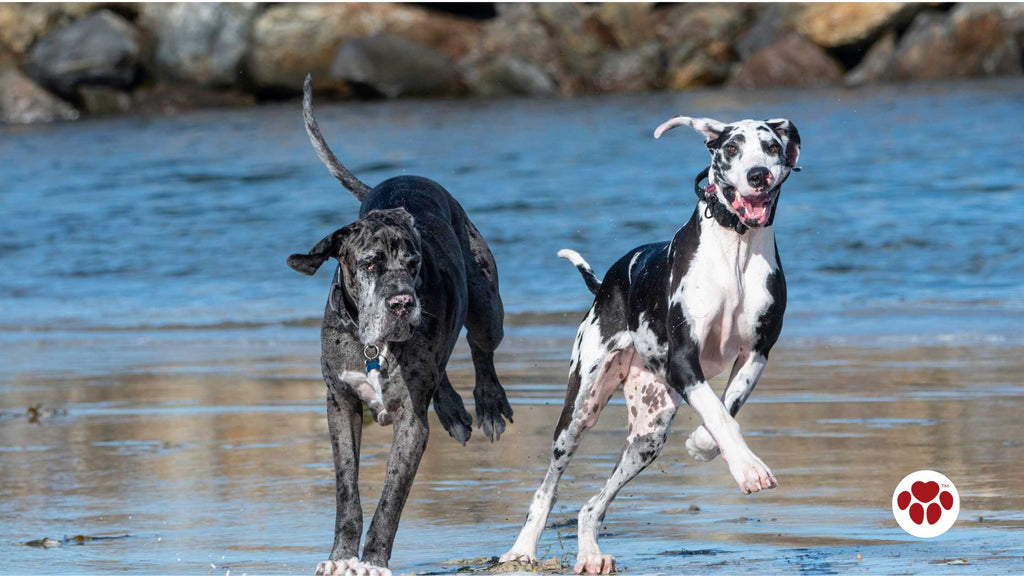
Creating a safe and comfortable living environment is essential for the well-being of your Great Dane. Here are some tips to ensure that they have a happy and stress-free home:
By creating a safe and comfortable living environment, you are setting your Great Dane up for success and ensuring that they can thrive in their home.
In conclusion, owning a Great Dane comes with its own set of challenges, particularly when it comes to their health. By understanding their unique needs, implementing preventive measures, and providing them with the best possible care, you can help ensure that your Great Dane lives a happy and healthy life.
From exercise and training to nutrition and regular veterinary care, every aspect of their well-being plays a crucial role in their overall health and longevity. With the right care and attention, you can enjoy many years of companionship and unconditional love with your Great Dane.